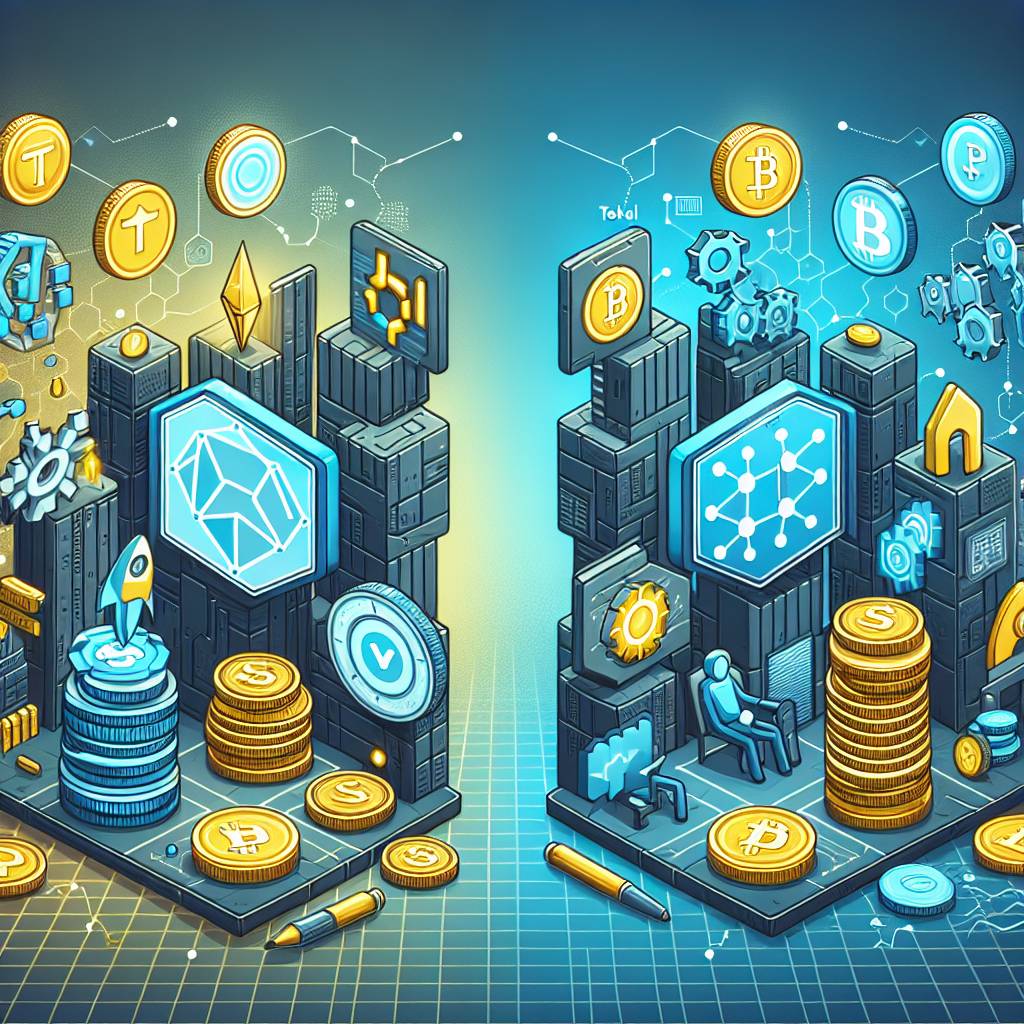What are the differences between tokens and coins in the cryptocurrency world?
In the cryptocurrency world, what are the main differences between tokens and coins? How do they function and what purposes do they serve?

3 answers
- Tokens and coins are both forms of digital currency in the cryptocurrency world, but they have some key differences. Coins, such as Bitcoin or Ethereum, are native to their own blockchain networks and have their own independent value. They can be used as a medium of exchange, store of value, or unit of account. Tokens, on the other hand, are built on top of existing blockchain networks, like Ethereum, and rely on their infrastructure. Tokens can represent various assets, such as digital collectibles, utility tokens, or security tokens. They are often used to access specific services or products within a blockchain ecosystem.
 Jan 11, 2022 · 3 years ago
Jan 11, 2022 · 3 years ago - When it comes to functionality, coins are usually used for transactions and can be sent or received directly between users. They have their own blockchain networks and operate independently. Tokens, however, require a compatible wallet or platform to be stored and transferred. They rely on smart contracts and the underlying blockchain network for their functionality. Tokens can be created, distributed, and managed through smart contracts, which provide additional functionality and flexibility compared to coins.
 Jan 11, 2022 · 3 years ago
Jan 11, 2022 · 3 years ago - From BYDFi's perspective, tokens and coins play different roles in the cryptocurrency world. Coins like Bitcoin or Ethereum are widely recognized and accepted as a form of digital currency. They have a large market capitalization and are often seen as a store of value or investment asset. Tokens, on the other hand, are more specific to certain projects or platforms. They can represent ownership in a particular project, access to services, or even voting rights within a decentralized organization. Tokens can have different levels of liquidity and value depending on the project they are associated with.
 Jan 11, 2022 · 3 years ago
Jan 11, 2022 · 3 years ago
Related Tags
Hot Questions
- 98
What are the advantages of using cryptocurrency for online transactions?
- 96
What is the future of blockchain technology?
- 78
How can I minimize my tax liability when dealing with cryptocurrencies?
- 73
How can I buy Bitcoin with a credit card?
- 61
How does cryptocurrency affect my tax return?
- 49
What are the tax implications of using cryptocurrency?
- 45
How can I protect my digital assets from hackers?
- 34
What are the best practices for reporting cryptocurrency on my taxes?
